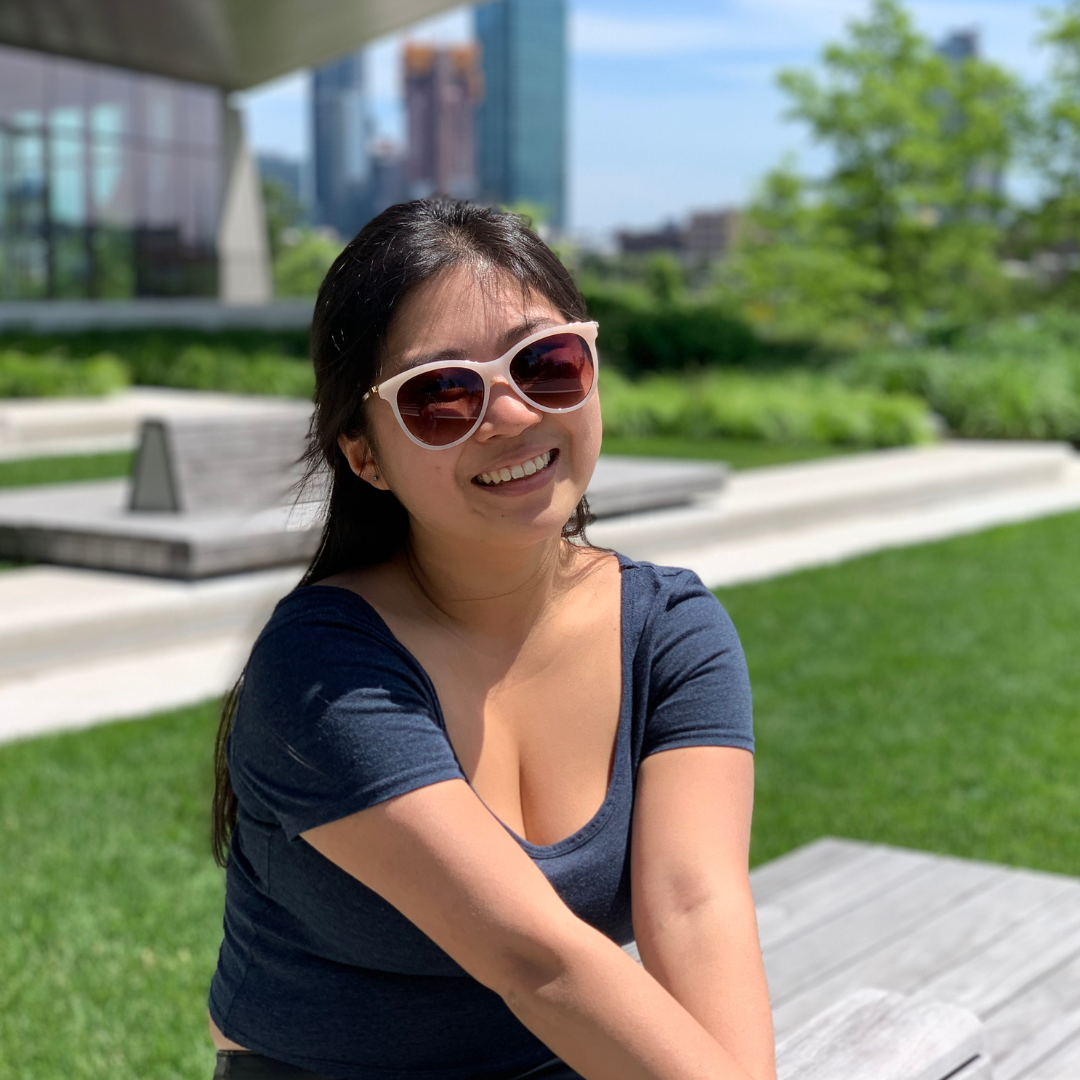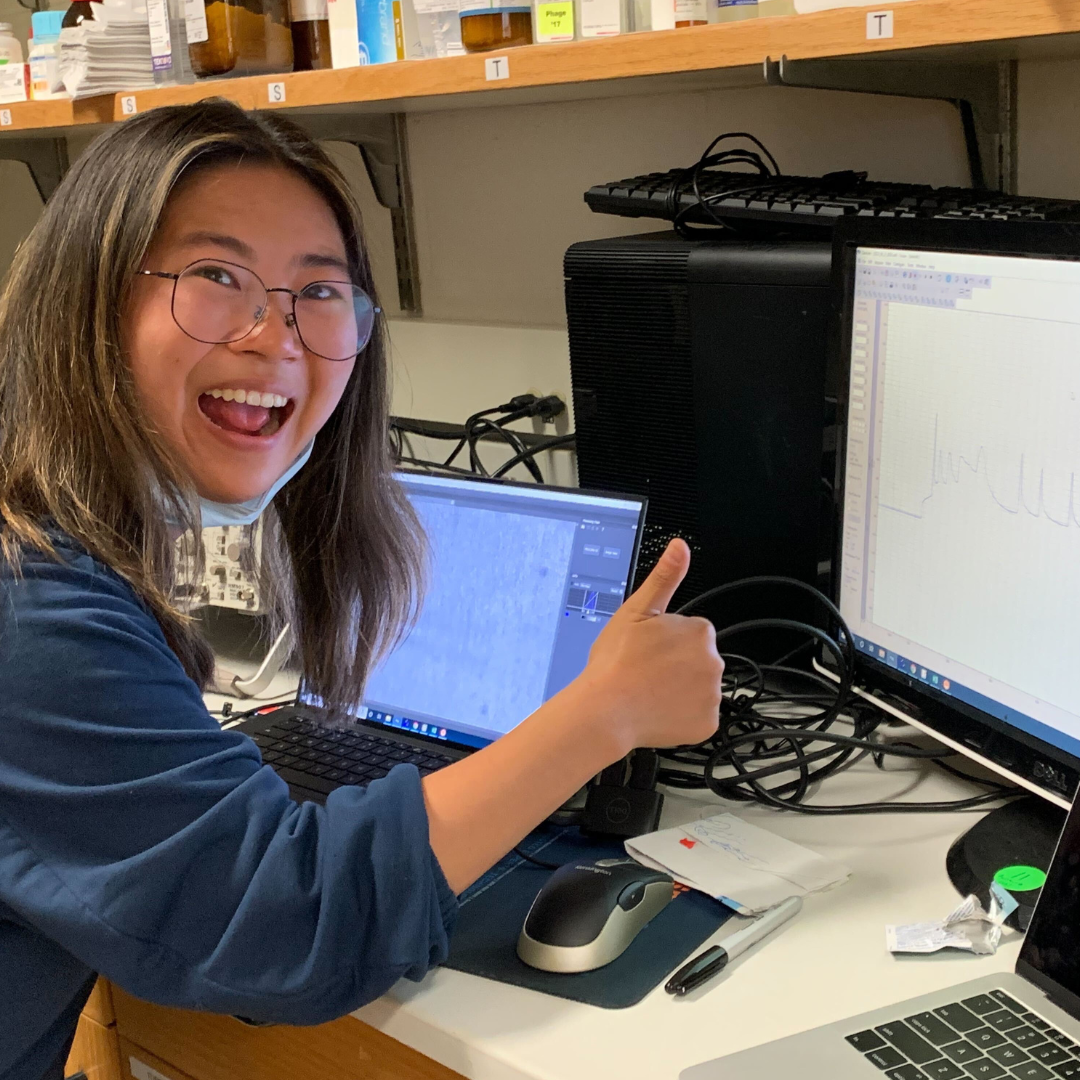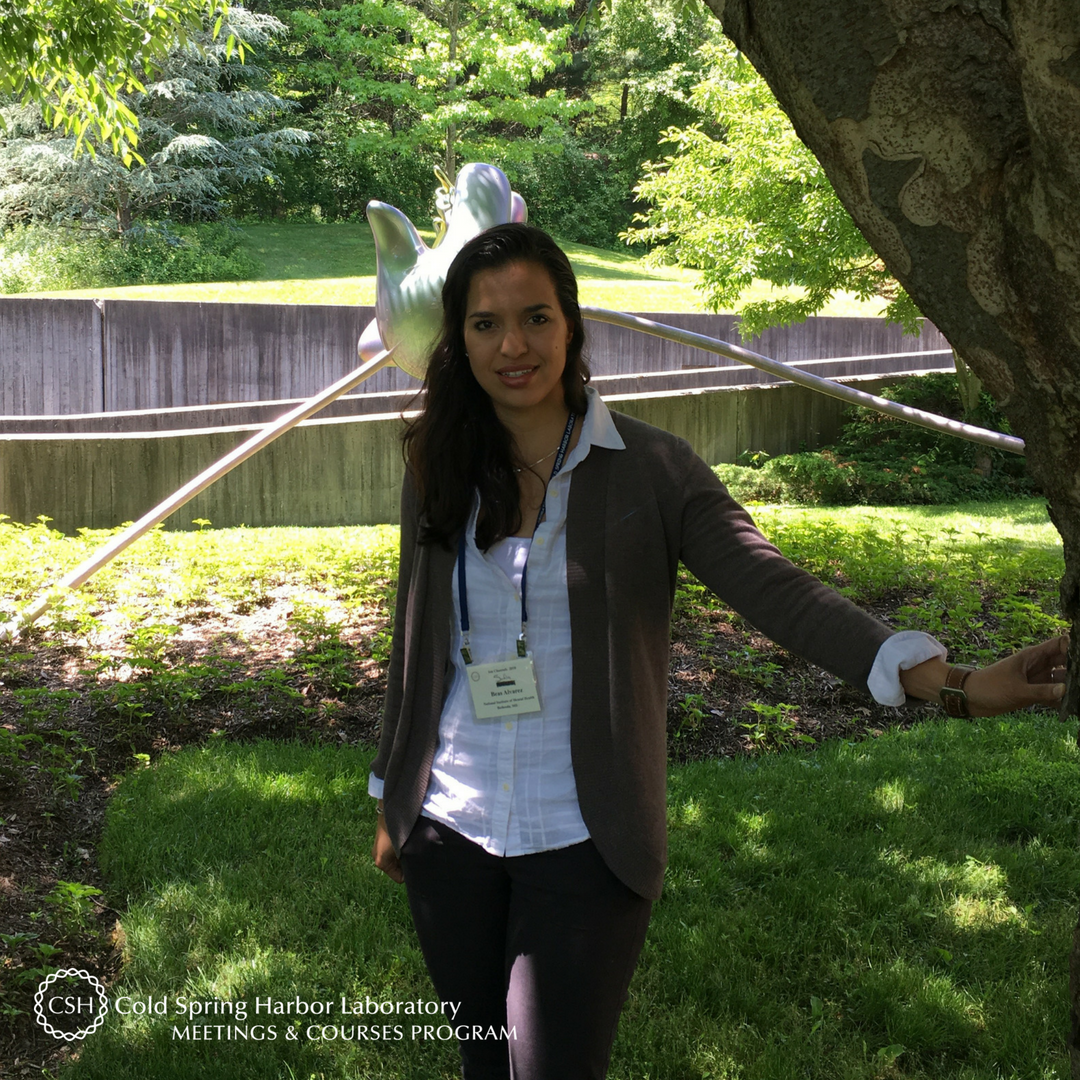Meet Annie Yao of the University of Connecticut Health Center. Annie is a MD/PhD Candidate in Dr. Riqiang Yan’s lab and recently trained at last month’s Ion Channels in Synaptic and Neural Circuit Physiology course.
Tell us about your research.
My lab studies the pathophysiological underpinnings of Alzheimer’s disease (AD), the most common cause of dementia worldwide. I’m interested in how beta-secretase, an essential enzyme in the development of AD, regulates neuronal excitability and synaptic plasticity.
How did you decide to focus on this area/project?
Since high school, I’ve been interested in combining translational research with helping patients. While working at the Broad Institute/MIT after college in Dr. Guoping Feng’s lab, which studies synapse and brain circuitry dysfunction in neuropsychiatric disorders like autism and schizophrenia, I was inspired to pursue a dual MD/PhD degree with the goal of studying and treating brain disorders. I chose my project after rotating in a couple of labs and being inspired by electrophysiology as a way to study neuronal (dys)function.
Annie patch-clamp recording of a dendrite in the hippocampal CA1 region.
What and/or who is the inspiration behind your scientific journey?
My parents are first-generation immigrants that moved to the U.S. to pursue their own graduate education in science. The strength and resilience they possessed to make that sort of leap… they have always been an inspiration to me.
What impact do you hope to make through your work?
I hope that my current and future research and clinical training will be able to directly shape patient wellbeing and improve therapeutics.
What do you love most about being a researcher?
One of my favorite parts of being a researcher is that there’s always something more to learn, a new skill to develop, a new perspective to explore.
What drew you to apply to this course?
I have heard amazing things about the Ion Channels course for many years, from both my mentors in previous labs and peers who have taken the course. I knew that this experience would be formative in my growth as a training electrophysiologist.
What is your key takeaway from the Course; and how do you plan to apply it to your work?
My key takeaway is to be persistent in your troubleshooting of the rig, and as one of our instructors emphasized at the end of our time here, to be rigorous in our practice of electrophysiology and critical about our data.
Patch clamp of a hippocampal CA1 pyramidal neuron while measuring evoked activity.
What feedback or advice would you share with someone considering to participate in this course?
You get out of an experience what you put in! When applying for the course, be sure to emphasize how your specific project would benefit from this immersive experience. When at the course, make use of the expertise that surrounds you every day – you have access to incredible teachers/scientists/electrophysiologists who can help you answer any question you have about your project design or execution. And finally, make time for yourself - 3 weeks of nonstop ephys is gratifying but intense!
What’s the most memorable thing that happened during the Course?
After the last day of hands-on lab work, our cohort went on a sunset sailboat trip together. It felt amazing to be on the water, with beautiful weather and in the company of new friends.
What do you like most about your time at CSHL?
Being surrounded by beautiful nature the second you step outside your cabin or the lab. Cold Spring Harbor is truly such a scenic place to learn in.
Thank you to Annie for being this week's featured visitor. To meet other featured scientists - and discover the wide range of science that takes part in a CSHL meeting or course - go here.
Images provided by Annie Yao










